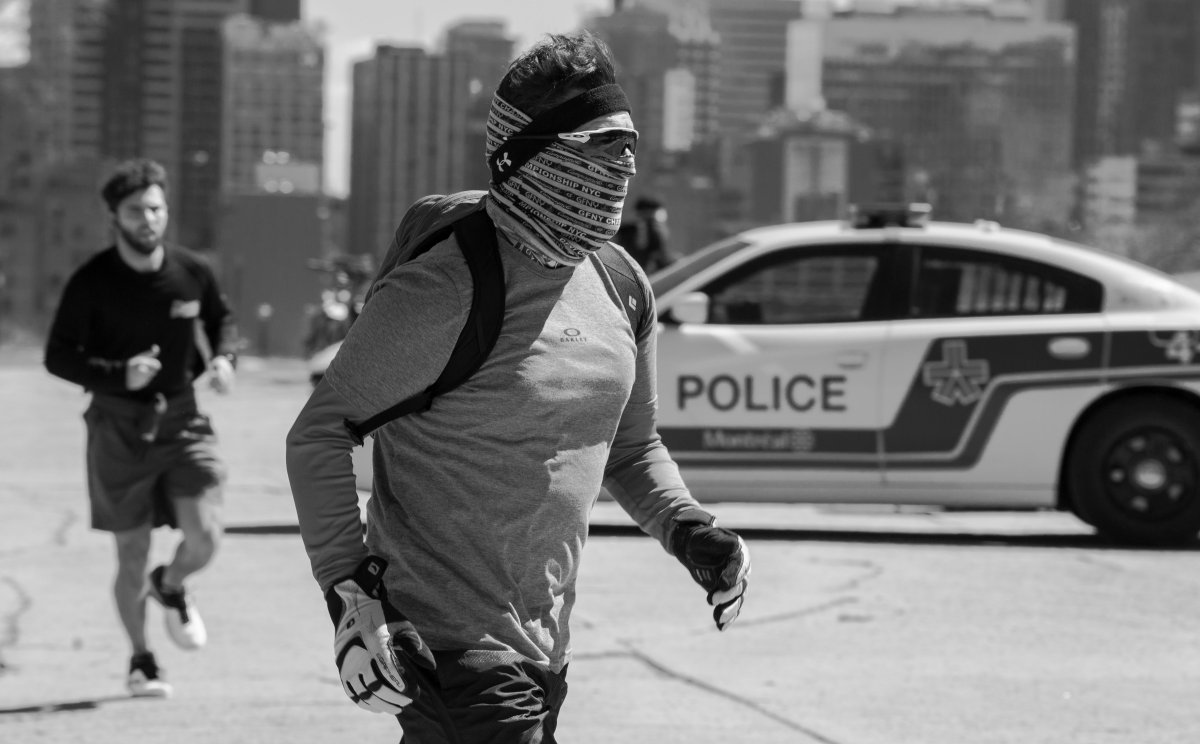Thursday marks one month since the Quebec government started implementing restrictions, in what some are calling the “COVID lockdown,” to help slow the COVID-19 pandemic that has claimed more than 200 lives in Montreal as of April 15.

The first phase of the restrictions came into effect on March 16 after Premier François Legault ordered the closure of all schools in the province, from daycares to universities.
Other measures were gradually introduced, and a week later, all non-essential businesses were ordered shuttered as Quebec residents were asked to self-isolate at home.
Legaut called the action “putting Quebec on pause.”
It was a move meant to make it easier to implement a physical distancing protocol, by asking people to keep two metres apart in public in a bid to prevent the transmission of the virus.
The measures resulted in deserted streets, school campuses, places of worship and most public spaces in the city.
People have continued to venture out, but some aren’t following social distancing rules.
As a result, access to certain parks has been restricted and police are now enforcing the protocol by fining violators up to $1,000.
To manage the pandemic, the provincial government made a big push to screen for the virus, aiming to have as many as 6,000 tests conducted daily.
With that in mind special test clinics were set up on the island, including one outdoor testing site at Place des Festivals, next to Place des Arts, and two drive-through clinics, in addition to other sites.”
With the tests more than 14, 000 infections have been discovered in the province, including almost 7,000 in the Montreal region so far.”
As people became more afraid of catching the disease, the debate about wearing masks to help stop the virus intensified.
The practice was originally discouraged by Quebec health authorities.
Though they still don’t recommend it, they do concede that some kind of mask could help prevent virus transmission, but caution that the face coverings should not be a substitute for physical distancing and handwashing.
Now even clothing stores have masks on sale.
With seniors making up most of the COVID-19 fatalities in the province, concern has now focused on how people in eldercare residences should have been, and can be, protected.
The virus has been tearing through Quebec seniors’ residences and some are now under scrutiny.

One in Dorval, where there has been 31 fatalities in three weeks, is the subject of three investigations including a police probe.
Five of the deaths have been confirmed as COVID-19-related.
Despite the challenges, the Legault government believes the peak of the infections is imminent.
Earlier this week, several businesses were added to the list of essential services including mechanics, garden centres, residential construction and mining.
While many sectors of the Quebec economy remain at a standstill, there is talk of a gradual reopening of businesses.
In Montreal, Mayor Valérie Plante has a plan to start relaunching the economy in May.






















Comments